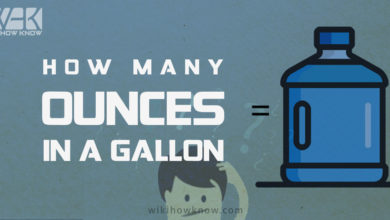A mile, a unit of distance entrenched in the imperial and US customary systems, finds its metric counterpart in the kilometer, equivalent to 1.609344 kilometers. The kilometer, a staple in the metric system, is precisely 1000 meters.
Conversion Methods: Tools at Your Disposal
Table of Contents
Converting between miles and kilometers can be executed through diverse methods, each offering its own level of convenience:
- Conversion Tables: A quick reference showcasing the equivalence between miles and kilometers.
- Calculators: Swift and accurate, calculators allow for on-the-spot conversions with ease.
- Online Tools: Web-based converters, easily accessible, provide instant results for varying conversion needs.
Conversion Factors: A Comprehensive Table
Here’s a detailed table illustrating the conversion factors between miles and kilometers:
| Unit | Equivalent |
|---|---|
| Mile | 1.609344 kilometers |
| Kilometer | 0.621371 miles |
Example Conversions: Navigating Distances Seamlessly
Understanding the practical applications of these conversions is made easier with examples:
- 1 mile = 1.609344 kilometers
- 2 miles = 3.218688 kilometers
- 5 miles = 8.04672 kilometers
- 1 kilometer = 0.621371 miles
- 2 kilometers = 1.242742 miles
- 5 kilometers = 3.106856 miles
Real-World Scenarios: Putting Numbers into Context
Explore the significance of miles to kilometers conversion in real-world scenarios:
- A marathon stretches 26.2 miles, equating to 42.195 kilometers.
- The distance between New York City and Los Angeles spans 2,448 miles, translating to 3,939.67 kilometers.
- The Earth’s circumference measures 24,901 miles, or 40,075 kilometers.
Frequently Asked Questions (FAQs)
Why is a mile different from a kilometer?
The distinction arises from the historical development of measurement systems. The mile is part of the imperial and US customary systems, while the kilometer is a unit within the metric system.
How was the conversion factor between miles and kilometers established?
The conversion factor, 1 mile = 1.609344 kilometers, is derived from the international agreement to standardize the metric system and ensure uniformity in measurements globally.
Are there other units related to kilometers in the metric system?
Yes, kilometers are part of the metric system, where distances are commonly measured in meters and kilometers. Additionally, there are larger units like megameters and smaller ones like centimeters.
Why do some countries use miles while others use kilometers?
The choice between miles and kilometers is often tied to historical preferences and regional conventions. Countries that have adopted the metric system, like most in Europe, use kilometers, while others, like the United States, still use miles.
Can I use the same conversion methods for both miles to kilometers and kilometers to miles?
Yes, the conversion is bidirectional. You can use the same conversion factor but inverted, meaning 1 kilometer is approximately 0.621371 miles.
How accurate are the provided conversion factors in real-world scenarios?
The provided conversion factors are accurate for most practical purposes. However, for extremely precise applications, it’s advisable to use more decimal places or consult authoritative sources.
When traveling internationally, should I use miles or kilometers?
In countries that use the metric system, distances are commonly expressed in kilometers. For international travel, especially in regions following the metric system, using kilometers is more appropriate.
How can I mentally estimate kilometers when I’m more familiar with miles, and vice versa?
A simple approximate conversion is to think of a kilometer as about 0.6 miles and a mile as approximately 1.6 kilometers. This can aid quick mental estimations.
Are there situations where using both miles and kilometers is necessary?
Yes, in global contexts, it’s beneficial to be comfortable with both units. For instance, understanding road signs in kilometers during travel or interpreting international sports event distances.
Can I use online converters for accurate measurements in scientific or engineering applications?
While online converters are generally accurate for everyday use, for critical scientific or engineering measurements, it’s advisable to employ specialized tools and ensure the highest level of precision.
Conclusion:
Understanding the relationship between miles and kilometers proves invaluable in various applications, such as travel, sports, and geography. Whether utilizing conversion tables, calculators, or online tools, this knowledge empowers individuals to seamlessly navigate between different units of distance measurement. It stands as an essential aspect of measurement literacy, enhancing precision and facilitating international communication in a world with diverse systems of measurement.


